The International Convention for the Control and Management of Ships’ Ballast Water and Sediments (the Convention) was adopted in 2004 and came into force on 8 September 2017. It sets out regulations which address the spread of invasive non-native species by ships’ ballast water and sediments.
The United Kingdom implemented the requirements of this convention through the Merchant Shipping (Control and Management of Ships’ Ballast Water and Sediments) Regulations 2022.
View more information on these regulations from the Maritime and Coastguard Agency.
The following links provide useful additional information:
- The UK regulations on Ballast Water Management
- Merchant Shipping Notice (MSN) 1908 – which sets out the detailed technical requirements of the obligations contained in the Regulations.
- Marine Guidance Note (MGN) 675 – which provides guidance relating to certain aspects of the regulations.
Note that the Convention applies to all vessels, regardless of size/tonnage, except:
- Ships not constructed/designed to carry ballast water;
- Ships that only operate in the waters of a single Party to the Convention (Domestically operating vessels);
- Ships operating in the waters of a single Party and on the High Seas;
- Warships, naval auxiliary or ships owned or operated by a State and used only on Government non-commercial service; and
- Permanent ballast water in sealed tanks on ships that is not subject to discharge.
The Convention defines ship as a vessel of any type whatsoever operating in the aquatic environment and includes submersibles, floating craft, floating platforms, Floating Storage Units (FSU’s) and Floating Production, Storage and Offloading vessels (FPSO’s). Floating craft encompasses a wide variety of vessels that operate in the marine environment and use ballast water for stability, heeling or operating purposes and includes, but is not limited to, fishing vessels, large yachts, dumb barges etc.
